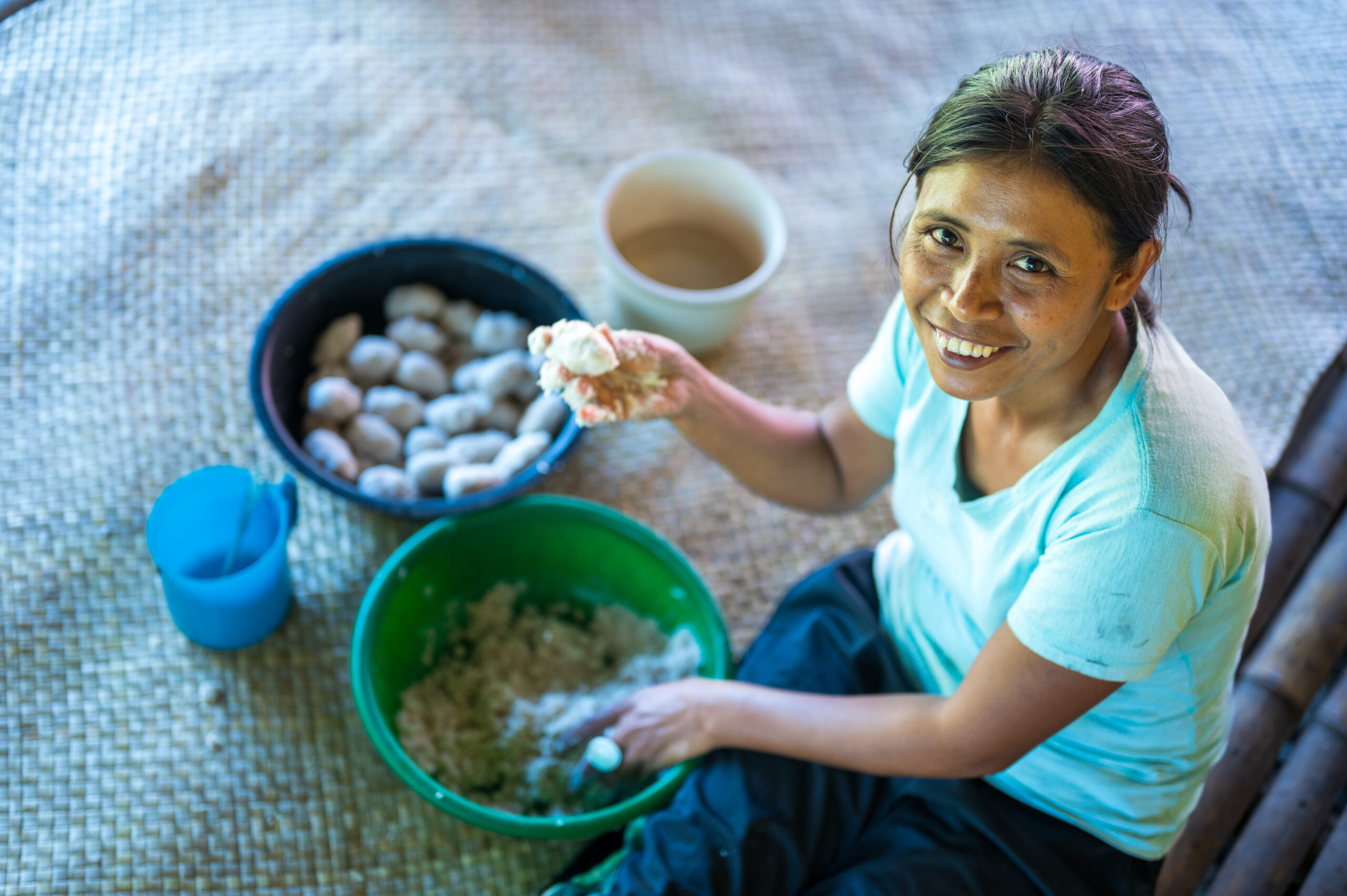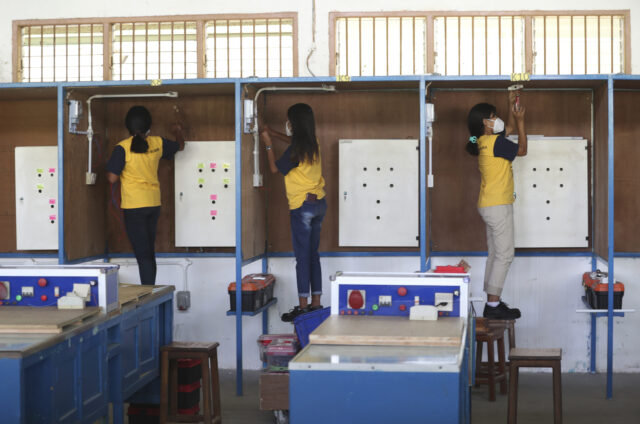
Climate Justice | June 14, 2024
Clean Energy for Empowerment and Leadership of Women in Sumba Island
Sri Handayani Nasution
The goal of a just energy transition is not only to move away from fossil fuels but also to ensure that renewable energy sources benefit everyone, especially those who have historically had limited access to clean energy. A just energy transition also prioritizes inclusivity and equity to solve energy poverty and reduce climate change. With proper and accurate intervention, energy transition to renewable energy also opens economic and political opportunities for youth and women.
Located in Sumba Island, East Nusa Tenggara province, two villages of Mata Redi and Mata Woga have the opportunity accessing clean energy for the first time in 2022. The installation of two integrated centralised Photo Voltaic (PV) power plants in Mata Redi shows how clean energy and decentralised energy solution empowers women and youth and challenge the existing power imbalance in society’s structure.
The solar panels provide accessible electricity for all, including women who are the most impacted community in the energy sector. Before the solar panels, women in remote areas in Sumba needed to collect firewood for their family and domestic necessity. Access to electricity helps women to reduce their workload, have access to modern appliances, take an active part in energy planning, and may even open the possibility of them being economically productive at the end of the day, where they can independently earn their own income. This income helps them have more power and control over their life, be involved in the decision-making process in their own family, become the capital for their self-improvement that may contribute to improving their leadership skills.
This also opens the involvement of women in public space, and not just confined to the domestic space; for instance, they may take on strategic roles in leading their community. When women finally can be involved in the decision-making process at the village level, they may push for the agendas that are often overlooked.
After installing the two integrated PV systems in Mata Redi and Mata Woga villages, many women can finally access reliable electricity for their homes and open artisan business utilizing electricity-powered appliances. Yanti Sada Mura, a single mother in Mata Redi, is one of the women who benefit from her newly found access to electricity. Considering herself as a bakery entrepreneur, she bakes her homemade bakery for her to sell every day.
Previously, Yanti needed to struggle to make her baked goods at night when her children had gone to sleep, as it was already dark and uncomfortable. When she has electricity in her home, she says, “Now that there’s electricity, I prefer to work at night. I’m much freer to make cakes when all the kids are asleep.”
Yanti is a Mata Redi woman motivated to help her female friends gain equality with men in both domestic and public arenas. With a high school education, she once ran for village head in Manola village in Loli district, West Sumba. She was also a legislature member candidate for the constituency of Loli in West Sumba. Outside the home, she coordinates the Hamlet 1 Citronella Women Farmers Group and the National Capital Madani Group (PNM) for Mata Redi that have successfully harvest commodities to be sold.
With electricity, Yanti plans to buy an electric mixer and an oven to increase her production of baked goods, which will be sold at a small shop she and her brother set up in Mata Redi village. Now, Yanti generates 50,000 to 100,000 Rupiahs daily income that she uses to advance her children’s education to junior and senior high school level.
Another story comes from Jolinda Lubulena, who is now one of the solar panel technicians. When renewable energy comes in, Jolinda undergoes a series of training to operate the solar panel until she is certified to do so and sometimes even fixes electricity problems in the villagers’ houses. Working in the male-dominated sector reveals for her that, after all, women and men are equal in society.
“In Mata Redi, we previously thought that men were superior to women; hence, men can work in many fields while women do not have that option,” she says. She now understands that being the operator of the solar panel is a position that women can also do and achieve.

Image 1. The women in Sumba train to become technicians. Source: Mentari’s archive
However, the inclusion of women and youth is not without any challenges. For women especially, the training intended to make them economically productive may result in a double burden for women who still need to do their traditional domestic duties even when they already have a business.
Other unintended consequences of the program may result in ‘jealousy’ or horizontal conflict between those who receive training and those who are still untapped and never receive any training.
Hence, the initiatives initiated by the civil societies need to be incorporated in the governments at the village level and other stakeholders’ future development initiatives. This multi-stakeholder collaboration must also consider the challenges and ensure that no one is left behind; where villagers are not segregated but included in all initiative steps. The upscale should consider how to ensure that the double burden does not fall onto the shoulders of many women who have begun their journey of empowerment.
Other initiative that they can take upon is providing series of training to utilize electricity for productive use, training provided for more youth, ensuring access to financial instruments for entrepreneurs, and providing access to relevant modern appliances such as water pump for irrigation, cold storage for small clinics or ‘puskesmas’, audio-visual tools for learning purposes at schools, and many more.
The initiatives can only be done by giving more space for women leadership to advocate for these needs that are often overlooked. Giving them more chances and opportunity to advocate for the causes closest to them and for the benefit of all at the village level.

